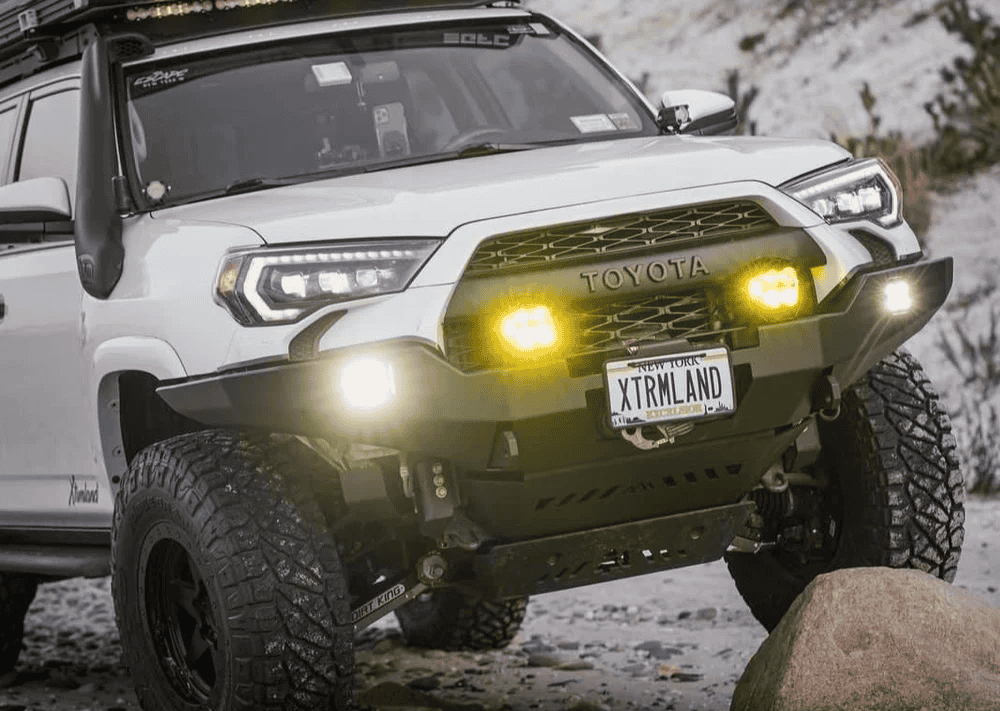Overland Vehicles

Short trips reward simple systems. Start with the destination, the season, and the drive time. A mountain bike loop and a lakeside camp pull different gear choices. Check trail access, fire restrictions, and water availability so you pack only what matters. Keep the goal clear before you fill a single tote.
Map the route with realistic time buffers. Weekends are tight, so build a timeline that includes traffic, fuel stops, and a first night arrival window. Arriving in daylight cuts stress and makes camp setup faster. If late arrival is likely, choose a site with easy access, level parking, and cell coverage for a simple check in.
Vehicle choice sets the foundation. A van, midsize truck, or wagon can all carry a tidy load if you manage weight and volume. Keep heavy items low and centered to preserve handling. Anything you need while driving goes up front within reach. Everything else lives in labeled bins or drawers in the rear, secured so nothing shifts on rough roads.
Power, water, and lighting define comfort. A small lithium battery with a charge controller keeps phones, lights, and a fridge running without idling the engine. Carry water in stackable jugs or a mounted tank with a simple spigot. Add warm, low draw lighting so camp tasks stay easy after sunset. The goal is quick routine, not gadgets for their own sake.
Weather drives clothing, shelter, and traction choices. Cross check a forecast for elevation swings and wind. Pack layered clothing with a dry reserve bag that never leaves the vehicle. If rain threatens, choose a high ground site with good drainage and a sheltered cooking area. In hot conditions, prioritize shade, airflow, and extra water. Plan B is your friend when the sky changes.
Sleeping comfort shapes the whole trip. Choose a quality sleeping pad or a fitted mattress made for your platform. Ventilation and airflow matter as much as insulation. Use a simple privacy shade system and a clean bedding roll that deploys in minutes. The less you fumble at camp, the more you relax.
Kitchen workflow should feel like muscle memory. Build three zones: pantry, cook surface, dish and trash. Pre pack meals by day, keep spices and oil in a small caddy, and carry a compact cutting board. A two pot kit is plenty for most weekends. Store the stove and fuel together so you never hunt for a crucial piece when the wind picks up.
Safety is layered. A first aid kit, headlamps, fire extinguisher, and a recovery strap live in consistent locations. Tire pressure is checked before leaving pavement and again at camp. A compact shovel, traction boards if terrain warrants, and a tire repair kit round out the basics. Navigation redundancy is smart: a downloaded map on your phone plus a paper map in the glove box.
Match shelter to trip pace. If you move each day, pick fast pitching options like a hard shell roof tent or an interior sleep platform. For basecamp weekends, a ground tent with a roomy vestibule creates a pleasant hangout zone. In shoulder seasons, a safe heat source and controlled ventilation make mornings easy. Never run an engine or open flame inside a closed space.
Packing is about repeatable systems. Standardize bins by activity and color code or label them. Keep a small duffel for grab and go items like toiletries and chargers. Pre load a kitchen bin that only returns to the house for cleanup and restock. A laminated checklist on the rear door trims forgotten items and helps each person pitch in.
Food planning is the secret speed tool. Plan quick breakfasts, one pot dinners, and a morale snack. Freeze a jug of water to chill the cooler on the drive and become drinking water later. Place the first meal at the top of the pantry so you can cook within minutes of parking. Clean as you go to avoid a late night pile.
Driving comfort matters too. Seat ergonomics, window shades, and temperature control reduce fatigue on the way out and back. Carry a compact broom and a small towel so dirt and moisture do not follow you into bedding. A dedicated dirty gear tub protects the interior and keeps camp tidy.
Once you know how you like to travel, professional help can turn a good layout into a reliable system. If you want a capable platform for gravel roads and remote camps, look at the Explore overland rigs page for ideas that translate to quick weekend escapes. When you are ready to tailor storage, power, lighting, and suspension to your routes, our Custom overland upfit options make setup and teardown feel effortless. Curious how we work and what customers experience with our team? See Why choose OZK Customs for process, quality, and service details.
At OZK Customs in Northwest Arkansas, we design and build complete adventure vans and overland rigs, and we also handle focused upgrades like electrical systems, storage, racks, lighting, and suspension. Share your trip style, crew size, and preferred terrain, and we will map a build that keeps your weekend adventure setup simple, safe, and ready every Friday afternoon.
Ready to skip the guesswork and roll out with a dialed rig? Tell us how you travel and we will tailor a build or upfit that fits your routes, your crew, and your budget. Share your trip goals in the form and the OZK team will propose a clean, reliable setup designed for fast weekends and longer escapes.
ADDRESS:
6159 E Huntsville Rd, Fayetteville, AR 72701
PHONE:
(479) 326-9200
EMAIL:
info@ozkvans.com